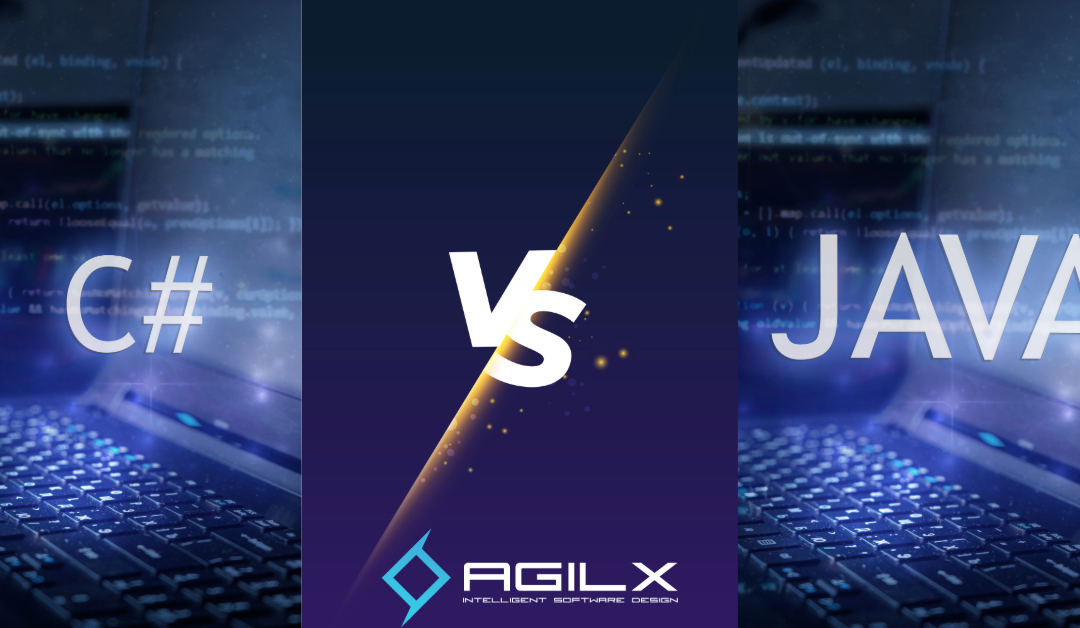Choosing the right programming language is akin to selecting the perfect tool for a particular job in software development. Among the plethora of options available, C# and Java stand out as stalwarts, each with its own strengths, weaknesses, and dedicated communities. In this article, we’ll delve into the comparative aspects of C# and Java to help developers make informed decisions based on their project requirements and personal preferences.
What is C#?
C# is a high-level, type-safe, object-oriented programming language. One of C#’s key features is versioning to ensure that both programs and libraries are able to evolve over time in such a way that they don’t become incompatible. This is achieved with the help of virtual and override modifiers, rules for overload resolution, and built-in support for explicit interface member declarations.
The main problem C# solvers is to make creating apps on the .NET Framework easier. The developers of C# made the language easy to learn for individual users. With C#, you can create mobile, web, Windows, database, desktop, and distributed applications.
What is Java
Java has become one of the most used languages on the planet. Originally created to be a small, reliable, portable, distributed, real-time operating platform. Today Java is used for mobile apps, games. Cloud computing, big data applications, AI, and IoT development. The solution Java originally went out to solve was to create a language that enabled developers to write a program only once and for it to be capable of running on any platform.
Compare and Contrast:
Syntax and Structure:
– C#: With its roots in C and C++, C# offers a syntax that is reminiscent of these languages, making it relatively familiar to developers with experience in those domains. Its syntax is concise and expressive, facilitating rapid development.
– Java: Java’s syntax is often described as more verbose compared to C#. However, this verbosity also contributes to its readability and maintainability, especially in larger projects where clarity is paramount.
Platform Independence:
– C#: Primarily associated with the Microsoft ecosystem, C# historically has been perceived as less platform-independent compared to Java. However, with the advent of .NET Core and its evolution into .NET 5 and beyond, C# has made significant strides towards cross-platform compatibility.
– Java: Java’s “write once, run anywhere” mantra has been a cornerstone of its appeal since its inception. Its robust virtual machine, the Java Virtual Machine (JVM), enables Java applications to run seamlessly on any platform with a JVM implementation, making it a go-to choice for cross-platform development.
Performance and Execution Speed:
– C#: Known for its performance optimizations, especially in the context of Windows environments, C# boasts impressive execution speed, particularly for desktop applications and games developed using platforms like Unity.
– Java: While Java’s performance has historically been criticized compared to natively compiled languages, modern JVM implementations, coupled with just-in-time (JIT) compilation techniques, have narrowed the performance gap significantly, especially for long-running server-side applications.
Ecosystem and Libraries:
– C#: The .NET ecosystem offers a vast array of libraries and frameworks catering to diverse development needs, ranging from web development (ASP.NET Core) to machine learning (ML.NET). The integration with Visual Studio provides a comprehensive development environment.
– Java: Java’s ecosystem is renowned for its maturity and richness. From enterprise-grade frameworks like Spring and Hibernate to robust IDEs such as IntelliJ IDEA and Eclipse, Java developers have access to a plethora of tools and libraries to streamline their development workflow.
Community and Job Market:
– C#: While historically overshadowed by Java in terms of community size and job market demand, C# has steadily gained traction, particularly in domains like game development, enterprise applications, and Microsoft-centric environments.
– Java: With decades of industry presence and a massive community of developers worldwide, Java remains one of the most sought-after programming languages in the job market, especially in enterprise settings and backend development roles
While both C# and Java have their merits, a closer examination often reveals that C# emerges as the superior choice for many developers and projects. With its roots in the Microsoft ecosystem, C# offers a seamless development experience, especially for those already invested in Windows environments. The language’s concise syntax, coupled with its performance optimizations and integration with cutting-edge technologies like .NET Core, positions it as a frontrunner in various domains, including game development, enterprise applications, and beyond. While Java boasts a robust ecosystem and platform independence, C# excels in providing a modern, feature-rich development environment that prioritizes productivity and performance. As the software development landscape continues to evolve, embracing C# opens doors to unparalleled opportunities and empowers developers to create innovative solutions that drive meaningful impact.
Agilx is a custom software development company. For information on custom software, and how you can increase your business’s efficiency with custom software contact Agilx at 402.817.4313 or support@agilx.com
